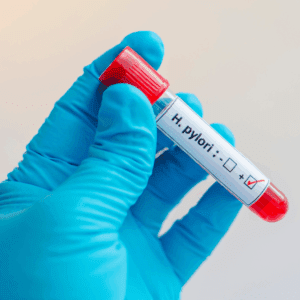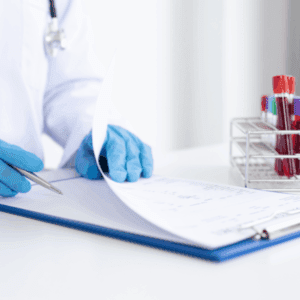Dr. Shria Kumar from the University of Miami’s Sylvester Comprehensive Cancer Center explains how biomarker and genomic testing are transforming stomach cancer care. Learn what questions to ask your oncologist, how to access comprehensive testing, even in community settings and why understanding your tumor’s genetic profile can open doors to personalized treatment and clinical trials. Learn more about Dr. Shria Kumar here.
Related Resources
Transcript
Lisa Hatfield:
Dr. Kumar, advances in precision medicine are changing stomach cancer treatment with targeted therapies and biomarker testing helping doctors match treatment to a patient’s cancer. But not all patients have equal access. What should patients ask to make sure they receive comprehensive biomarker testing, and how can they advocate for newer, targeted treatments if their cancer has specific molecular features?
Dr. Kumar:
Absolutely. You know, precision medicine has transformed stomach cancer care, but we certainly need to make sure that access and awareness are widespread. Biomarkers or molecular and genomic testing can help guide treatment decisions.
I would really encourage patients to ask their oncologist if their tumor has been tested for biomarkers or genomics, and if there are clinical trials based on their tumor’s genetic profile. Sometimes this can be easier done if you have a support person with you at the appointment, or if you’ve jotted down a few questions before the appointment, so you can make sure you remember to ask this.
There are also many cancer centers, which are called NCI-designated cancer centers, or National Cancer Institute-designated centers. They often offer second opinions, which can be reassuring for patients to make sure that testing is complete and comprehensive. It is important to note that these centers often offer telehealth or virtual appointments. So even if the location is physically far, patients should still reach out to understand their options.
I think the main thing to remember is that you don’t need to be an expert. You can ask the question, and in doing so, learn more about your own cancer and partner with your oncologist.
Lisa Hatfield:
And a lot of patients are seen in their community cancer centers. Is it likely if they were diagnosed maybe in a smaller community center that they would have done this comprehensive biomarker testing? I know you said to ask their oncologist but, what if their oncologist says no, we haven’t done that, what is the option for them?
Dr. Shria Kumar:
Certainly. They can do that on their own. They can also ask their oncologist to do that for them. If the patient already has biopsies at their community oncologist’s office or their community pathologist’s office, tumor tissue slides or samples can be sent for this genetic testing. Oftentimes, it just takes asking the question or having the discussion to know whether this comprehensive genomic testing is a possibility for that tumor. And oncologists are—whether they’re in the community or at these cancer centers—they’re very motivated to help people get access to the most cutting-edge care there is.
Lisa Hatfield:
How important is it to know your genetic markers of that cancer?
Dr. Shria Kumar:
I think it’s an individual scenario. I think it’s important to ask the question, and if the oncologist feels strongly that it’s not necessary, or it’s not standard of care, I think they should be able to communicate that very clearly. But I think particularly for difficult-to-treat tumors or tumors that have been widespread, this comprehensive testing can help guide people for immunotherapy, personalized treatment decisions, or even clinical trials.



